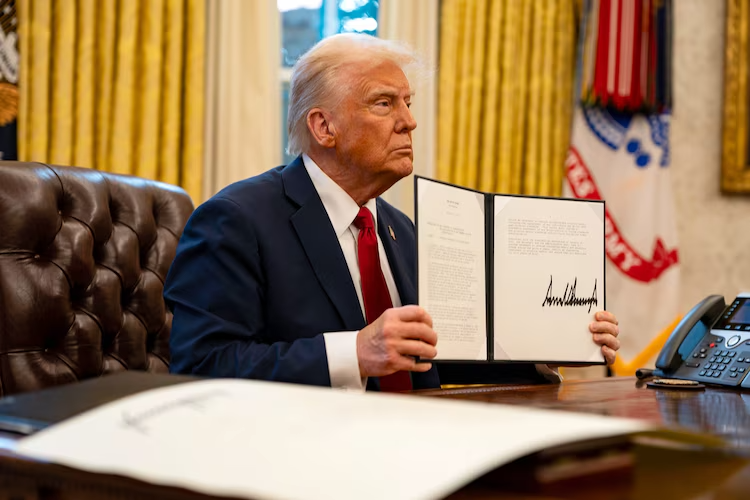Second Federal Judge Blocks President Trump’s Transgender Military Ban
President Trump’s effort to restore gender-based standards in the U.S. military was dealt another blow on Friday after a second federal judge issued a nationwide injunction blocking the administration’s ban on transgender troops from taking effect.
Background: Executive Orders on Military Readiness
In January, President Trump signed two executive orders:
- “Restoring America’s Fighting Force”, which mandates that the military operate without preference based on race or sex, and
- “Prioritizing Military Excellence and Readiness”, which aims to eliminate gender ideology, pronoun mandates, and any non-biological considerations from military readiness evaluations.
These orders directed all branches of the armed forces to return to what the administration calls “merit-based, apolitical” standards for recruitment, promotion, and unit cohesion.
Judge Settle Issues Injunction
On Thursday evening, U.S. District Judge Benjamin Hale Settle, a George W. Bush appointee and retired Army JAG officer, became the second judge to halt the Trump policy nationwide. In his 65-page ruling, Settle criticized the administration’s legal rationale, stating:
“The government’s arguments are not persuasive, and it is not an especially close question on this record.”
Settle took issue with the administration’s reliance on deference to military leadership, pointing out that just a week prior to the new policy’s implementation, the same military leadership had allowed transgender individuals to serve openly without disruption.
He concluded that the government had not presented credible evidence to justify the sudden reversal in policy, and that the executive order lacked sufficient factual or military-based justification.
Trump DOJ Files Immediate Appeal
In response, the Department of Justice filed an appeal on Friday, seeking to overturn the injunction and reinstate the executive orders. The appeal argues that the president, as commander-in-chief, has broad authority to define standards for military service and that the policies are rooted in discipline, unit cohesion, and readiness—not discrimination.
BREAKING: “Trump Administration files appeal from lower court decision that enter an injunction prohibiting military from excluding those with gender dysphoria.” — Margot Cleveland, via X
A Pattern of Judicial Resistance
Last week, Judge Ana Reyes, a Biden-appointed judge originally from Uruguay, issued a similar nationwide injunction, becoming the first federal judge to block the policy. Her ruling also centered on the administration’s lack of “evidence-based justification” for barring transgender service members, citing continued military performance under the previous administration.
Broader Political Implications
These rulings underscore the continued tug-of-war between the judiciary and the executive branch, especially on hot-button social and cultural issues. While the Trump administration frames its actions as a return to common-sense military standards and a rejection of “gender ideology,” federal judges have increasingly stepped in, framing such policies as constitutionally suspect or discriminatory.
Supporters of the executive orders argue that the military is not a social experiment and must prioritize combat effectiveness over ideological inclusion. Critics contend that banning transgender service members is discriminatory and undermines both recruitment efforts and morale.
What Happens Next?
The appeal now moves to the Ninth Circuit Court of Appeals, where arguments are likely to center on executive authority over military affairs versus individual rights and anti-discrimination statutes. Given the national scope of both injunctions, the case could ultimately make its way to the Supreme Court—especially if lower courts remain divided.
For now, both court orders remain in effect, and transgender individuals cannot be removed from service or barred from enlistment based solely on gender identity or medical history related to gender dysphoria.
As this legal battle unfolds, it reflects deeper national divides—not only about military policy, but about the role of the judiciary in shaping America’s cultural and constitutional future.

